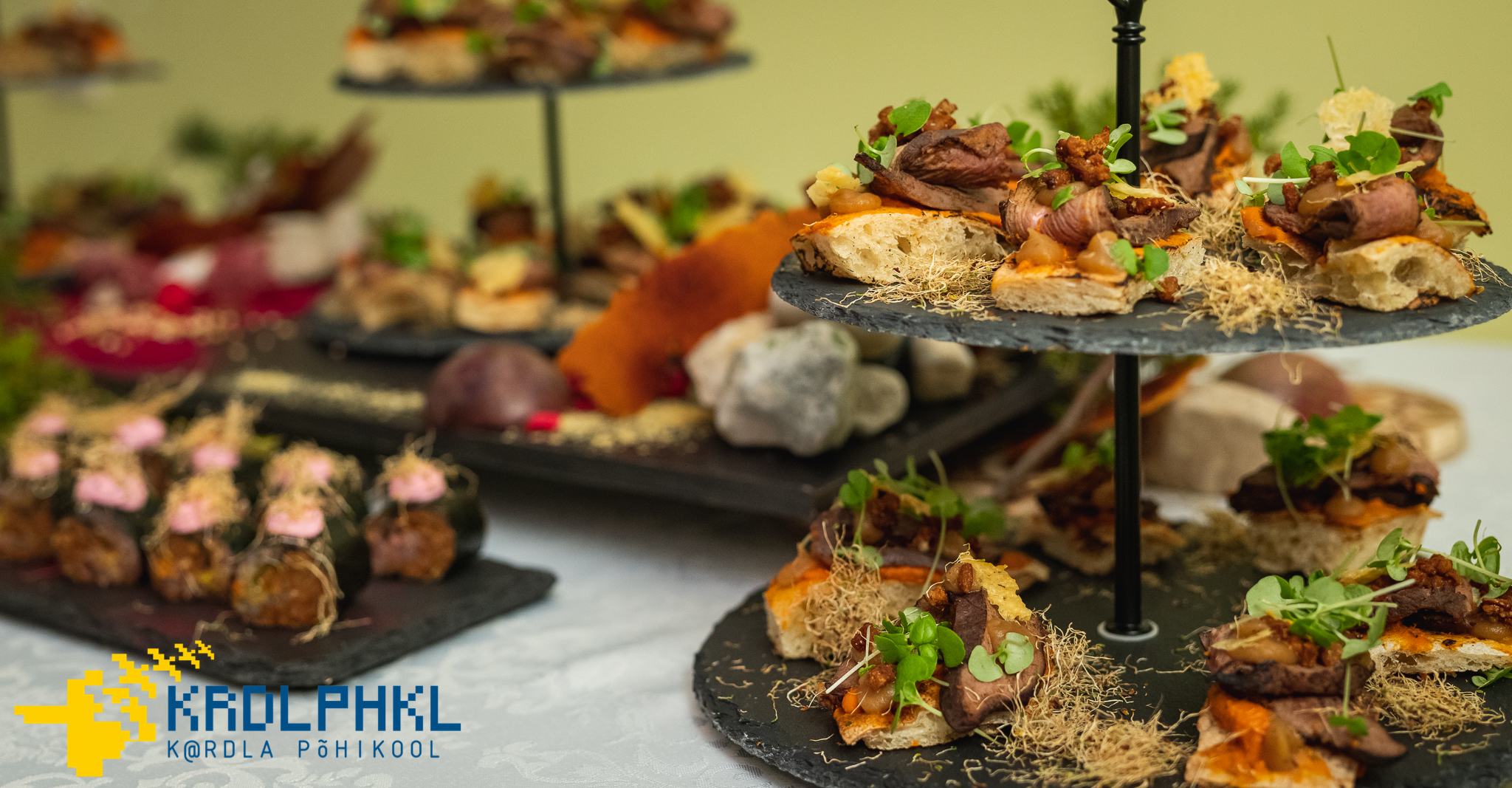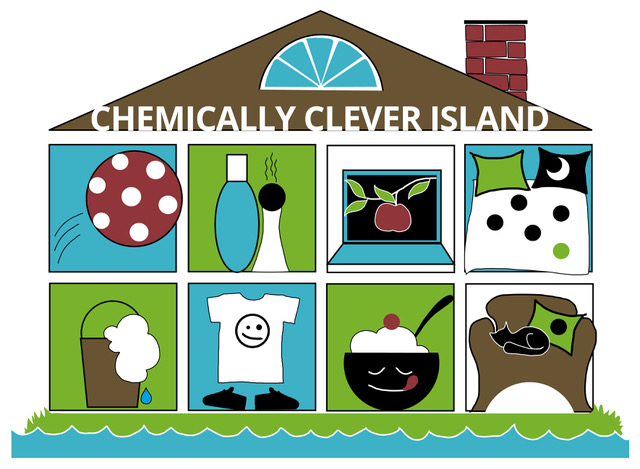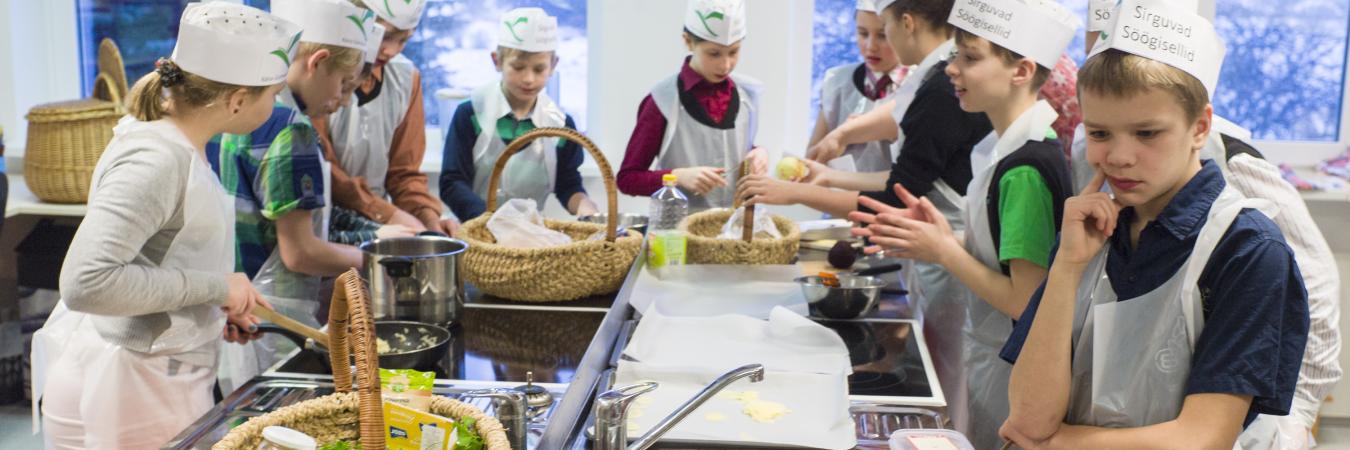Local and organic food to school kitchens, Hiiumaa
WHAT?
Hiiumaa as the rest of Estonia is happy to still have local school kitchens making their own meals. This project is aimed at increasing the schools’ use of organic and local food.
WHY?
More organic and local food on the scool menue, containing less pesticides and additives, is healthier for the children. Increased demand for organic crop and animal husbandry decreases the environmental impact of food production.
While organic options are not available for the whole range of food, promoting local production is a sustainable choice too. Focusing on the school food you reach out not only to the children but also their parents, teachers, school employees and the municipality.
Hiiumaa is a part of the UNESCO West Estonia Archipelago Biosphere Reserve, and as such a ‘learning place for sustainable development’. One aim with the food project is to raise awareness of the impact of food production on the environment.
HOW?
The school food project in Hiiumaa is a part of a larger cooperation project on organic and local food with three other LAG-associations around Estonia: Lannemaa, Saaremaa and Jõgevamaa.
Making study tours and visiting fairs in Estonia and abroad are offered to educate and motivate food producers as well as teachers and municipality employees. Contacts are established between local food producers and schools.
Since the running project is a follow-up of a previous school food project, a study of the use of local and organic food is planned: What is the current situation, what are the trends and challenges?
Participationg in fairs and study tours and arrangeing events like competitions for chefs, the project partners also exchange experiences and inspire each other.
Starting all over again: School food as work in progress
The benefits of feeding school children organic and locally produced vegetables, fruits, meat and diary might seem obvious. Less chemicals like pesticides and food additives means healthier food for the kids. Organic farming and diminished transports means less impact of food production on the environment. Moreover, promoting local produce is socially sustainable: a way of supporting the local community and it’s resilience and self-suffiency.
Still, the challenges are legio. The official regulations concerning procurement are often focused on the price, which favors the cheaper anonymous industrially produced food and might even proclude buying organic and local produce.
The school employees buying the food have their routines and habits. Awareness raising is the key to change.
The previous project concerning school food, Growing Gastronauts 2012-2014, was very successful, appointed to be one of 14 European projects that had really made a difference in 2015. Study tours were made to France and England. The schools started buying local meat as whole animals, processing the meat themselves. And children were so engaged they came earlier to school to chop vegetables or prepare dessert.
”This time it is harder”, says Reet Kokokvin, project leader at LAG Hiiumaa.
”Just in a few years, most of the people involved at that time have moved on to other tasks. What was then accomplished is now forgotten and we have to start from scratch again.”
The national regulations have became more complex, and employees everywhere, regardless occupation, are busy and reluctant to new commitments.
The main question to every school is: What do you need to increase the amounts of organic and local food on the school menue? At this stage the project needs to reach out to parents and teachers. When it comes to the food producers, who might be interested in selling their products directly to the schools? In Hiiumaa a mapping has been done: What is there to buy, from whom? The long-term planning is a challenge, though: Since farmers need to know in advance how much crops to grow, big orders (like a schools annual consumption of carrots) need to be made in February or March.
In a small society a few persons in vital positions will make all the difference. Every new idea needs it’s devoted champions, and a person-to-person approach is important for things to happen. Still, a project should not be totally dependent on one or a few persons. What kind of structures are needed to facilitate long-term planning, contacts and continuity so the project will lead to change in the long run, and not just be a one-off?
Traditional party, trendy food
In Estonia there is a custom to celebrate when it’s 100 days left until graduation, both from the basic school of 9 years and from the gymnasium of three more years. So why not use the occasion to strike a blow for trendy local food?
The traditional graduation party is held in pursuit of wisdom.
Before 2020’s 100-day basic school graduation party, like the year before, the students had a special opportunity to acquire knowledge. The Hiiumaa LAG supported the teaching of making snacks at the Principal’s reception as a part of the LEADER cooperation project ”Local food trendy”.
Taavi Maiste and Denis Bobrovnikov, chefs in restaurant Ungru during the summer months, praised their young helpers at Kärdla Basic School and their ability to learn quickly.
We were able to train eighth-grade’s students with very little of experience in cooking to become chefs at a gourmet restaurant level who made snacks with a dozen components,
was their brief summary of the six-hour collaboration.
The chefs had a special responsibility to make the festive reception a success,
says Liisi Mäeumbaed, the vice principal. She is impressed of the organizational work:
”They had a lot of thinking and figuring out, and they managed it successfully. They could make some preparations in the school’s study kitchen, but since it is located at the other end of the house, the final touch was given in the room next to the hall”.
The event was a way to seize several local resources:
- Schools in Hiiumaa still have their own school kitchens,
- Hiiumaa is lucky to have connections with two internationally experienced chefs,
- the party itself as a recurring venue, and of course:
- the locally produced food itself.

IDEA -> CHALLENGE -> NEW IDEA...
Why not eat the fresh local food from Hiiumaa ourselves, instead of just shipping the crop to the mainland as anonymous raw material? When promoting the locally produced food in schools, food stores and restaurants, the lack of storage turned out to be a problem.
Nearly every garden has it’s own underground storehouse, but without storage possibilities in larger scale producers are forced to sell their crop without delay.
With support from LAG Hiiumaa a locla farmer has applied for Leader project money to build a larger cellar. Another idea in the pipeline is to build storage space beneath solar panels in the solar park, using the solar energy to regulate the temperature.
Local organisations can often see their community from a different perspective than the authorities. New ideas and activities – including the challenges that will arise – will create new opportunities that serve and develop the whole cummunity.

